
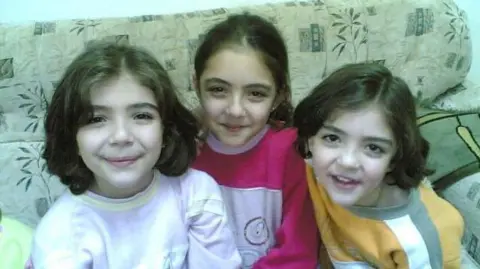 Naila Al-Abbasi
Naila Al-AbbasiFamilies of Syrian detainees are searching for their missing loved ones since the release of thousands of prisoners after the fall of the Assad regime on Sunday.
The family of the Syrian dentist who was arrested with her six children told the BBC that they still hope to find them.
Meanwhile, the daughter of a US-based psychotherapist, who was kidnapped in 2017 and is believed to be dead, says she has been affected by videos showing people declared dead being found alive.
As rebel forces swept across the country in recent weeks, they released thousands of political prisoners held in government prisons – including The famous Saydnaya prison is near The capital, Damascus.
But with torture and executions common in these places under Bashar al-Assad's government, many are still waiting to find out whether their relatives are among those released.
“We really hope we can see Rania and her children again.”
Rania Al-Abbasi was arrested from her home in Damascus in March 2013 by Syrian Military Intelligence officers. Her children, aged between two and 14, were taken with her to prison.
Her husband, Abdul Rahman Yassin, was arrested the previous day.
Rania's sister, Naila Al-Abbasi, a doctor living in Saudi Arabia, told the BBC: “We cannot accept Rania's murder.”
“Since the fall of the regime, we really hope that we will be able to see Rania and her children again. We especially want to see her six children.”
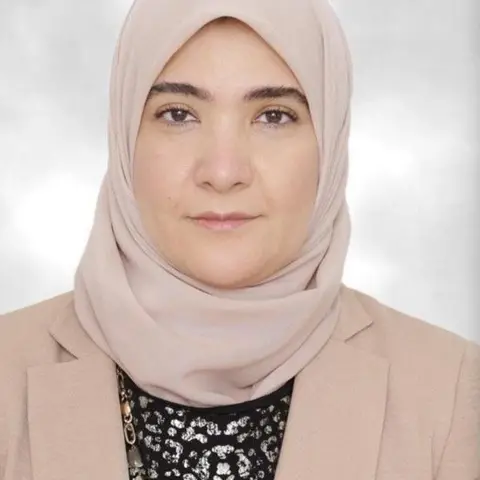 Naila Al-Abbasi
Naila Al-AbbasiAt the time of their arrest, Abbasi's children – Dima, Intisar, Najah, Alaa, Ahmed, and Layan – were 14, 13, 11, eight, six, and two years old, respectively.
Naila said: “They took Rania with her children, and since that day we have not known anything about them.”
The family received only one piece of information about their arrest, which came shortly after the arrest. They believe the family was being held in a prison in Damascus, known as the Palestine Branch, which is run by Syrian intelligence.
One inmate who was released told the family in 2013 that she heard the voices of children in prison, two weeks after her arrest.
Now that the prisoners have been released, their family members on the ground are visiting the prisons to try to find them.
“We watch the news, we see people released from prisons, and we look at videos to see if we can see them,” Naila said.
“But the prisons have been opened and we have not seen Rania yet. It is unbearable.”
She added: “We have been waiting for this day for 13 years.” “But our wounds are still as fresh now as if it happened yesterday.”
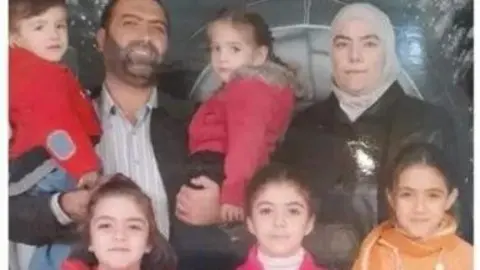 Naila Al-Abbasi
Naila Al-Abbasi“The FBI told us he was dead but they didn't have a body.”
Majd Kamalmaz, a psychotherapist from Texas, disappeared in Syria in 2017. His daughter, Maryam, told the BBC she was still trying to find out what happened to him.
Kamalmaz had traveled to Damascus to visit an elderly family member.
On the second day of his trip, Mr. Kamalmaz – who was born in Syria but grew up and lived in the United States – was stopped at a Syrian government checkpoint in Damascus, and has not been seen or heard from since that day.
Earlier this year, US intelligence officials told his family that they had confidential and reliable information that he died in prison.
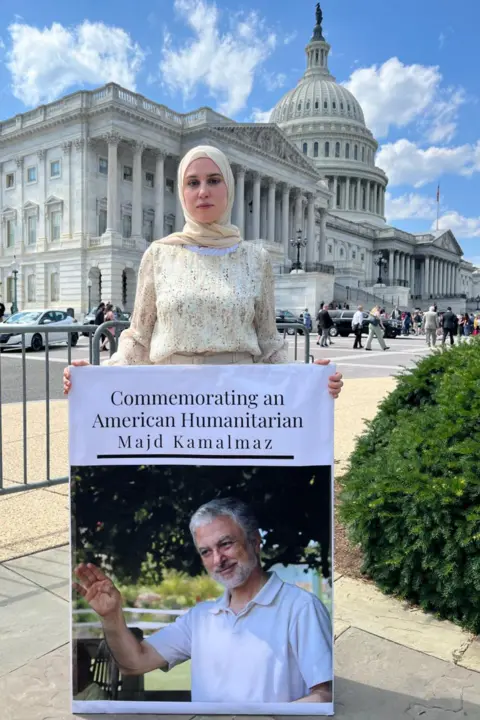 Maryam Kamalmaz
Maryam KamalmazBut Meryem Kamalmaz refuses to give up the idea that her father might still be alive.
“The FBI told us he was dead, but they didn't have a body or any specific information,” she added.
“We are seeing stories of people who were declared dead and given death certificates, only to be found to be alive.
“It renews our hope of finding him alive. But if we don't, at least we want to find his remains and put an end to the matter somehow,” he added.
Maryam added: “We have people inside Syria who go to hospitals with high hopes, as well as to Sednaya prison.
“I keep seeing pictures and videos of people coming out of Saydnaya prison, and thinking maybe I will see him there.”
Maryam said that she did not know why her father was kidnapped. Her family believes he may have been held captive by the Assad family because he is American.
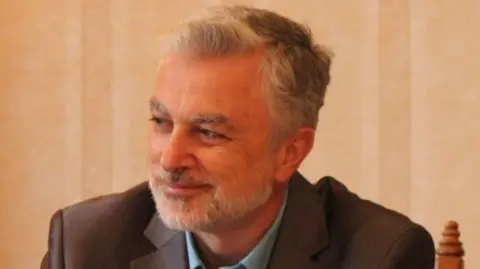 Maryam Kamalmaz
Maryam Kamalmaz







